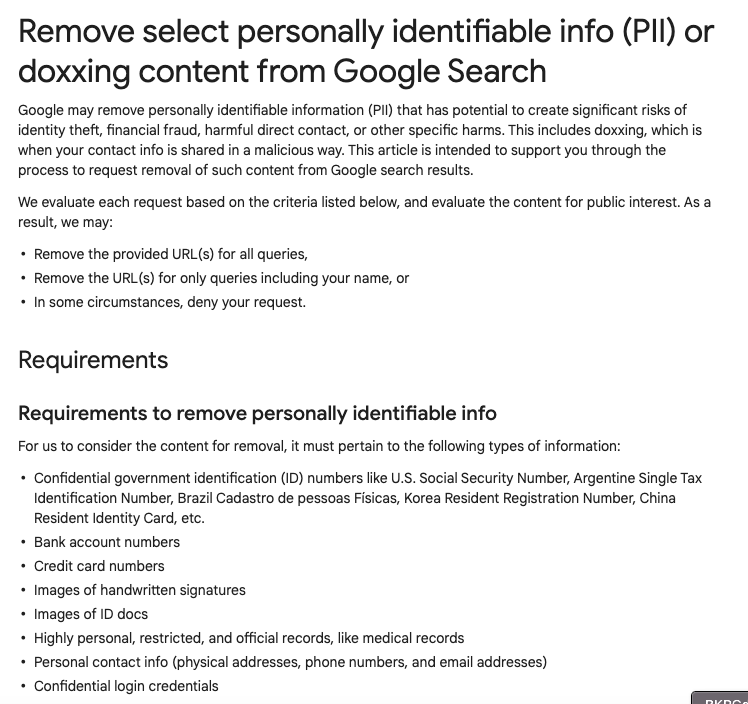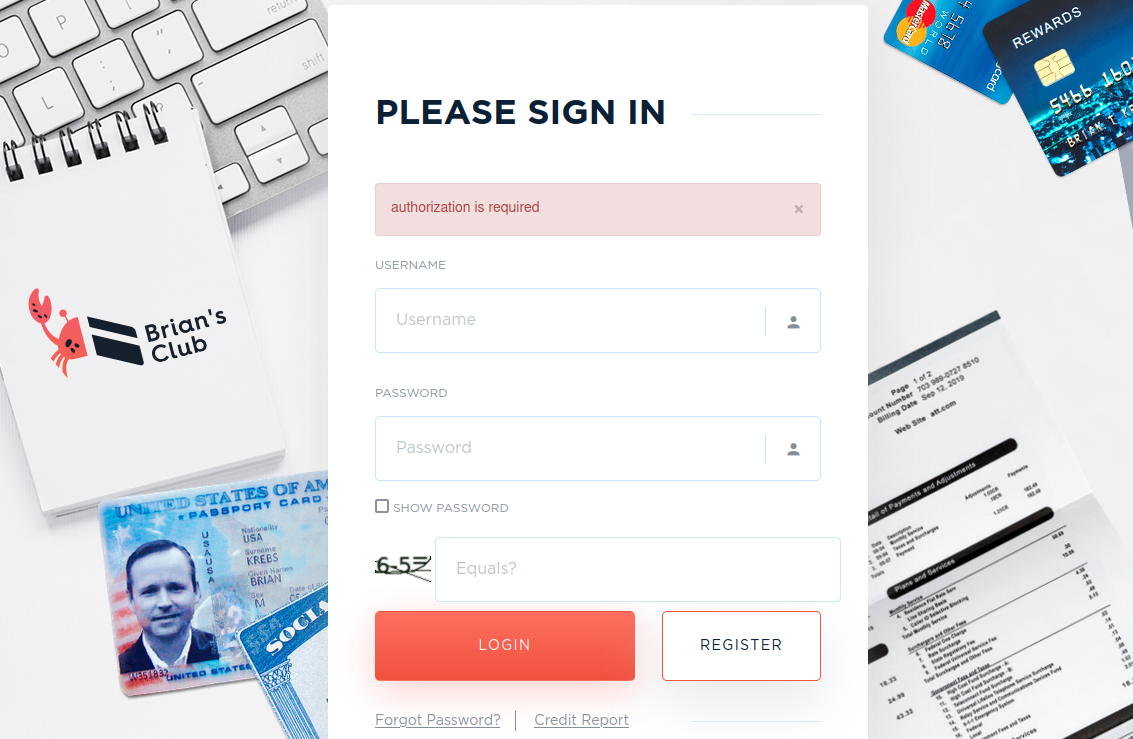5 STAR U-G-A
Legend
You Can Now Ask Google to Remove Your Phone Number, Email or Address from Search Results
April 29, 2022
https://krebsonsecurity.com/2022/04...il-or-address-from-search-results/#more-59639
April 29, 2022
https://krebsonsecurity.com/2022/04...il-or-address-from-search-results/#more-59639
Google said this week it is expanding the types of data people can ask to have removed from search results, to include personal contact information like your phone number, email address or physical address. The move comes just months after Google rolled out a new policy enabling people under the age of 18 (or a parent/guardian) to request removal of their images from Google search results.

Google has for years accepted requests to remove certain sensitive data such as bank account or credit card numbers from search results. In a blog post on Wednesday, Google’s Michelle Chang wrote that the company’s expanded policy now allows for the removal of additional information that may pose a risk for identity theft, such as confidential log-in credentials, email addresses and phone numbers when it appears in Search results.
“When we receive removal requests, we will evaluate all content on the web page to ensure that we’re not limiting the availability of other information that is broadly useful, for instance in news articles,” Chang wrote. “We’ll also evaluate if the content appears as part of the public record on the sites of government or official sources. In such cases, we won’t make removals.”
While Google’s removal of a search result from its index will do nothing to remove the offending content from the site that is hosting it, getting a link decoupled from Google search results is going to make the content at that link far less visible. According to recent estimates, Google enjoys somewhere near 90 percent market share in search engine usage.
KrebsOnSecurity decided to test this expanded policy with what would appear to be a no-brainer request: I asked Google to remove search result for BriansClub, one of the largest (if not THE largest) cybercrime stores for selling stolen payment card data.
BriansClub has long abused my name and likeness to pimp its wares on the hacking forums. Its homepage includes a copy of my credit report, Social Security card, phone bill, and a fake but otherwise official looking government ID card.

The login page for perhaps the most bustling cybercrime store for stolen payment card data.
Briansclub updated its homepage with this information in 2019, after it got massively hacked and a copy of its customer database was shared with this author. The leaked data — which included 26 million credit and debit card records taken from hacked online and brick-and-mortar retailers — was ultimately shared with dozens of financial institutions.
TechCrunch writes that the policy expansion comes six months after Google started allowing people under 18 or their parents request to delete their photos from search results. To do so, users need to specify that they want Google to remove “Imagery of an individual currently under the age of 18” and provide some personal information, the image URLs and search queries that would surface the results. Google also lets you submit requests to remove non-consensual explicit or intimate personal images from Google, along with involuntary fake pornography, TechCrunch notes.
This post will be updated in the event Google responds one way or the other, but that may take a while: Google’s automated response said: “Due to the preventative measures being taken for our support specialists in light of COVID-19, it may take longer than usual to respond to your support request. We apologize for any inconvenience this may cause, and we’ll send you a reply as soon as we can.”
Update: 10:30 p.m. ET: An earlier version of this story incorrectly stated that people needed to show explicit or implicit threats regarding requests to remove information like one’s phone number, address or email address from a search result. A spokesperson for Google said “there is no requirement that we find the content to be harmful or shared in a malicious way.”


